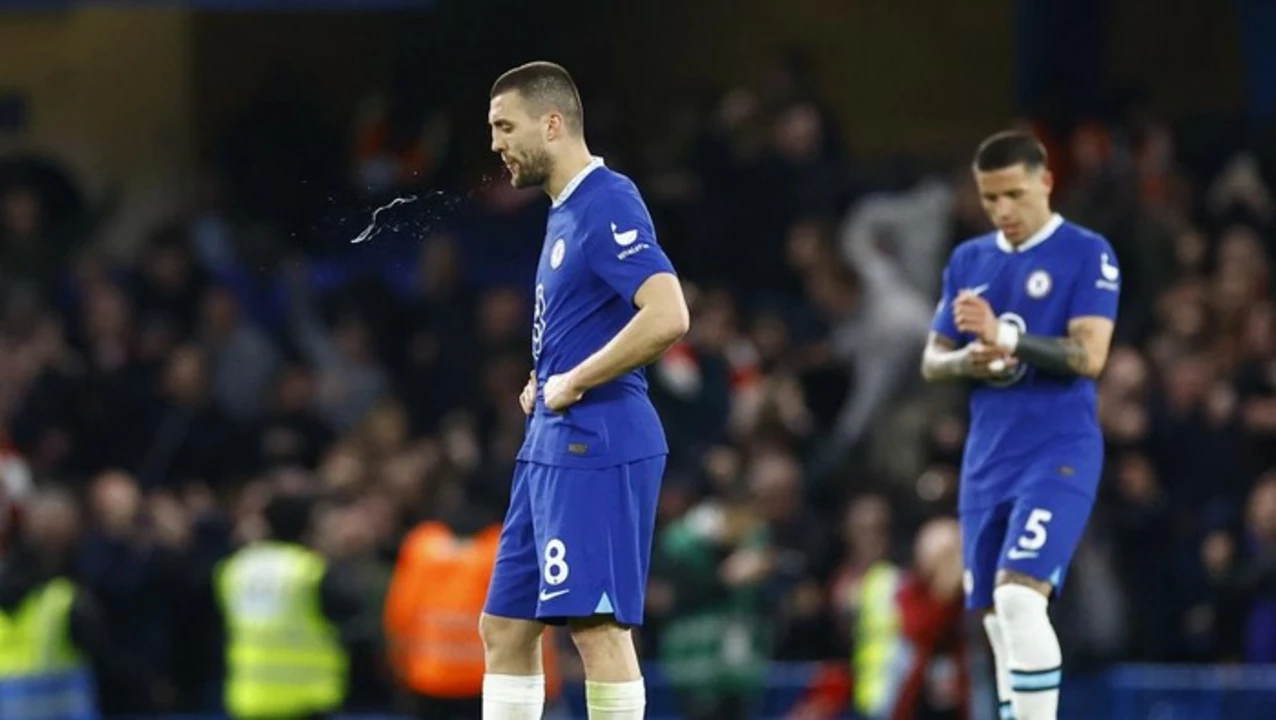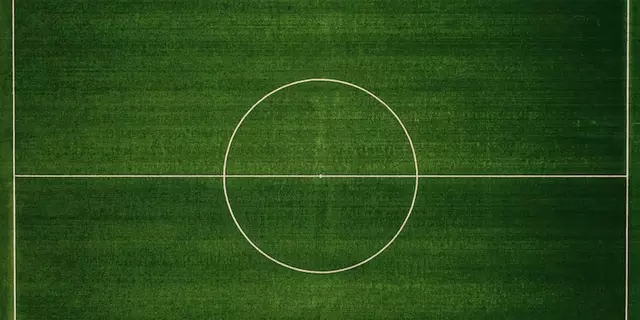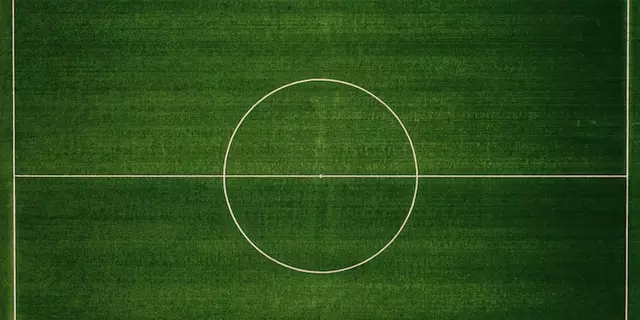Exploring the Controversy Surrounding the First Ever Reversal of a 0-0 Score in Football
In 2021, a football game between two teams ended in a 0-0 draw. This wouldn’t have been particularly unusual, had it not been for the fact that the score was later reversed in the wake of a controversial decision by the tournament organizers. It was the first time in the history of the sport that such a decision had been taken, and it has sparked debate about the fairness and integrity of the game.
The controversy occurred when the two teams in question, Team A and Team B, were tied at 0-0 after the full 90 minutes of play. The match went to extra time, where Team A scored a goal. However, the referee disallowed the goal due to an alleged offside. The decision was highly contentious, and the tournament organizers then decided to reverse the 0-0 score, awarding the win to Team A.
The reversal of the score was met with outrage from fans, players, and pundits alike. Some argued that it was unfair to Team B, as the referee’s decision had ultimately decided the result of the match. Others argued that the decision was necessary in order to ensure the fairness of the tournament, and that the reversal was the only way to ensure that Team A was not unfairly disadvantaged.
The controversy has raised important questions about the fairness and integrity of football. Some argue that the reversal was a necessary measure to ensure fairness, while others argue that it undermined the integrity of the game. The debate is likely to continue for some time, as the implications of the reversal are still being discussed.
The controversy has also highlighted the need for greater transparency in football. Many have argued that tournaments should be more open about their decisions, and that the reasons behind such decisions should be made clear to players, fans, and commentators alike. This would ensure that the integrity of the game is preserved and that players and fans have a greater understanding of the rules and regulations governing the sport.
The controversy surrounding the reversal of the 0-0 score in football has highlighted the need for greater transparency in the sport, and for greater clarity regarding the rules and regulations governing it. It has also raised important questions about the fairness and integrity of the game, and it is likely to continue to be debated for some time.
A Look Back at the Most Notable 0-0 Reversals in Football History
Football is a game of great skill and strategy, where players must outwit and outplay each other for the win. But sometimes, the game can end in a draw, at 0-0. While this can be a disappointment for some teams, the 0-0 result can sometimes be overturned. Let’s take a look at some of the most memorable 0-0 reversals in football history.
Tottenham Hotspur vs. Manchester United (1997)
This was the first ever 0-0 reversal in the history of football, and it took place in 1997. After a goalless draw in the first leg of their FA Cup semi-final, Tottenham Hotspur managed to beat Manchester United in the replay. They did this by playing with a more aggressive and attacking style, which managed to break down United's defence.
Liverpool vs. Chelsea (2005)
In 2005, Liverpool and Chelsea faced off in a UEFA Champions League semi-final. After a goalless draw in the first leg, Chelsea managed to beat Liverpool in the replay. They did this by controlling the possession and playing a more effective defensive game, which frustrated Liverpool’s attack.
Manchester United vs. Chelsea (2007)
In 2007, Manchester United and Chelsea faced off in a UEFA Champions League semi-final. After a goalless draw in the first leg, Manchester United managed to beat Chelsea in the replay. They did this by taking an early lead and then defending it well. They also managed to frustrate Chelsea’s attack, which allowed them to secure the win.
Real Madrid vs. Bayern Munich (2012)
In 2012, Real Madrid and Bayern Munich faced off in a UEFA Champions League semi-final. After a goalless draw in the first leg, Real Madrid managed to beat Bayern Munich in the replay. They did this by playing a more attacking style of football, which allowed them to create more chances and score the winning goal.
Manchester City vs. Tottenham Hotspur (2019)
In 2019, Manchester City and Tottenham Hotspur faced off in a UEFA Champions League quarter-final. After a goalless draw in the first leg, Manchester City managed to beat Tottenham Hotspur in the replay. They did this by playing a more aggressive and attacking style, which allowed them to create more chances and score the winning goal.
These are just a few of the most notable 0-0 reversals in the history of football. It goes to show that the game is full of surprises and that anything can happen. So, if you ever find yourself in a 0-0 deadlock, don’t give up hope. You never know if your team can pull off a miraculous reversal.
Examining the Debate on Whether 0-0 Scores Should Be Reversible in Football
In the sport of football (soccer), a 0-0 score has never been reversed in its history. This has been a point of contention among fans and players, with some arguing that a reversal should be allowed and others arguing that it should not. There are a few key points to consider when examining this debate.
The Argument for Reversals
Supporters of reversals argue that a 0-0 score does not give an accurate reflection of a team's performance. They point to the number of chances that each team has in the course of a match, and suggest that the score should be reversed if one team has had more opportunities than the other. Supporters of reversals also point out that a 0-0 score does not give a team any points, and that a reversal would increase the competitiveness of the game.
The Argument against Reversals
Those opposed to reversals argue that it would be too difficult to accurately measure a team's performance in a 0-0 game. They say that it is impossible to know how many chances each team had, and how many of these chances were good ones. Opponents of reversals also suggest that allowing a reversal would lead to teams playing defensively in order to avoid losing points. This, they argue, would reduce the entertainment value of the game.
Impact on the Game
The debate surrounding whether or not 0-0 scores should be reversible has been a contentious one. Some argue that it would make the game more competitive and would give teams a chance to make up for lost opportunities. Others argue that it would lead to teams playing defensively, which would reduce the entertainment value of the game. Ultimately, the impact of such a decision would depend on how it is implemented and monitored.
Conclusion
The debate surrounding whether 0-0 scores should be reversible in football is an important one. Supporters of reversals argue that it would make the game more competitive and give teams a chance to make up for lost opportunities. Opponents of reversals argue that it would lead to teams playing defensively, which would reduce the entertainment value of the game. Ultimately, the decision of whether or not to allow reversals will depend on how it is implemented and monitored.
Uncovering the Hidden Impact of 0-0 Reversals on the Outcome of Football Matches
Football is one of the most popular sports in the world, with millions of fans tuning in to watch their favorite teams battle it out on the pitch. But what happens when a match ends in a 0-0 draw? Has a 0-0 ever been reverted in the history of the game?
The answer is no, no 0-0 has ever been reverted in the history of football (soccer). The 0-0 is a rare occurrence, and it's usually seen as a sign of a poor performance from both sides. This can have a huge impact on the outcome of the match, as it can be difficult for teams to come back from a 0-0 draw.
However, that doesn't mean that 0-0s don't have any effect on the outcome of the match. In fact, 0-0s can often be the difference between a win and a loss. It's just that their impact isn't always visible to the naked eye.
One way 0-0s can influence the outcome of a match is by creating a sense of fatigue among players. When a team is in a 0-0 draw for an extended period of time, the players start to feel tired and their performance can suffer. This can lead to mistakes and miscommunication, which can be costly in a close match.
The psychological impact of a 0-0 draw can also be significant. Teams struggling to break the deadlock can become frustrated and lack the motivation to push forward. This can lead to a loss of momentum and make it harder for them to score.
Finally, 0-0s can have a financial impact on the team. If a team is struggling to break the deadlock, they may be reluctant to make substitutions or tactical changes, which can be costly. Furthermore, a 0-0 draw can be damaging to a team's reputation, and can lead to a drop in ticket sales and sponsorship deals.
In conclusion, 0-0s can have a huge impact on the outcome of a match, even if they don't result in a result being reverted. Teams must be aware of the potential implications of a 0-0 draw and prepare accordingly to avoid a costly loss.



